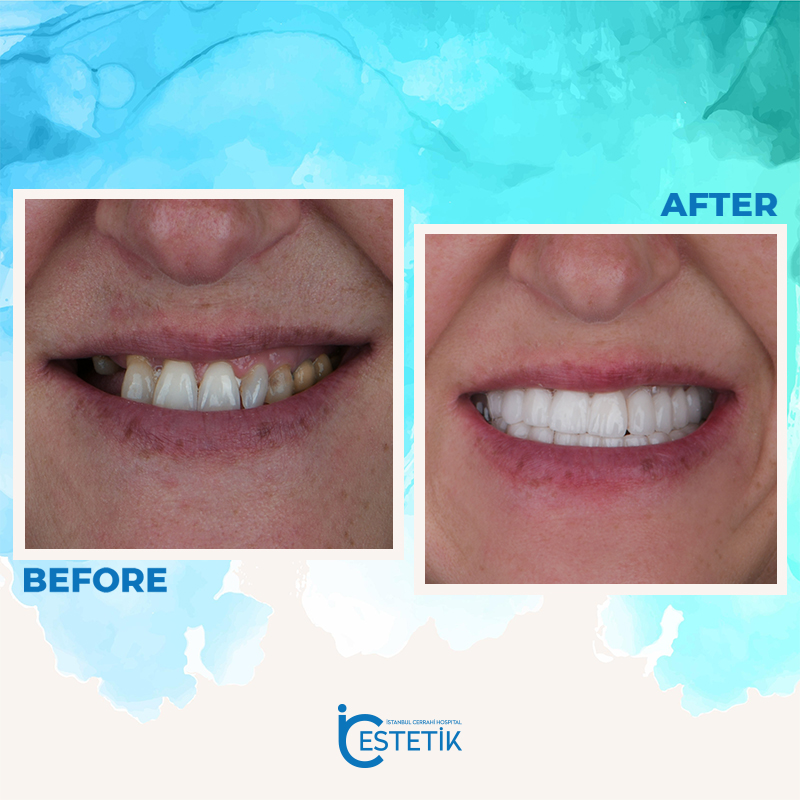Dental Crowns
A dental crown is a cap-shaped restoration used by dentists to repair and restore weak, broken, or decayed teeth.
The crown is designed to fit over the entire tooth, similar to a snug hat. Before placing the crown, a small amount of enamel is typically removed from the tooth to ensure a proper fit and bonding of the crown.
Dental crowns are crafted by dental technicians using various materials, including resin, metal, and porcelain. These materials are chosen based on factors such as the location of the tooth, aesthetic preferences, and functional requirements. Each material has its own unique properties and benefits, and your dentist will recommend the most suitable option for your specific needs.
When would you need a dental crown?
Dental crowns serve several important purposes. Here are some common reasons why you may need a dental crown:
Strengthening a weak tooth: A dental crown can provide strength and support to a tooth that has been weakened due to decay, fractures, or large fillings.
Protecting a cracked tooth: A crown can help hold together a cracked tooth, preventing further damage and protecting the underlying tooth structure.
Restoring a worn-down or broken tooth: Crowns can restore the shape, size, and function of a tooth that has been significantly worn down or broken.
Supporting a dental bridge: Dental crowns are used to anchor a dental bridge in place by capping the adjacent teeth on either side of the gap.
Covering a severely stained or discolored tooth: If a tooth is severely stained or discolored and other cosmetic treatments are not effective, a crown can be placed to improve its appearance.
Covering a root canal-treated tooth: After undergoing root canal treatment, a tooth may become more brittle and prone to fracture. A dental crown can provide added protection and support to the treated tooth.
Covering a dental implant: A dental crown is used to restore the appearance and function of a missing tooth that has been replaced with a dental implant.
Types of dental crowns
There are various types of dental crowns available, each with its own characteristics and considerations. Here are some common types of dental crowns:
Metal Crowns
Made from metals such as gold, palladium, nickel, or chromium. They are highly durable and can withstand biting and chewing forces. However, their metallic color makes them more suitable for molars or less visible teeth.
Porcelain-Fused-to-Metal (PFM) Crowns
These crowns combine the strength of metal with the natural appearance of porcelain. They can be matched to the shade of your natural teeth. However, the porcelain layer may wear over time and expose the metal underneath. PFM crowns are used for both front and back teeth.
Pressed Ceramic Crowns
These crowns have a hard ceramic inner core with multiple layers of porcelain. They provide a natural-looking appearance similar to all-porcelain crowns. However, the porcelain layers can chip over time.
All-Ceramic or Porcelain Crowns
These crowns provide the most natural appearance, mimicking the translucency of natural tooth enamel. They are a good option for those with metal allergies. Materials like zirconium dioxide are used to create highly durable all-ceramic crowns that are gentle on opposing teeth.
Same-Day Dental Crowns
Utilizing CAD/CAM technology, these crowns are created in the dentist’s office during a single visit. Digital impressions are taken, and a milling machine crafts the crown from a block of ceramic. Same-day crowns offer convenience but may not be suitable for all cases.
All-Resin Crowns
Resin crowns are less expensive but more prone to fractures compared to other types of crowns. They are commonly used as temporary crowns and have an average lifespan of three to five years.
When choosing the right type of dental crown, your dentist will consider factors such as your specific dental needs, aesthetic preferences, and budget. They will recommend the most suitable option to ensure optimal function and aesthetics for your individual situation.







